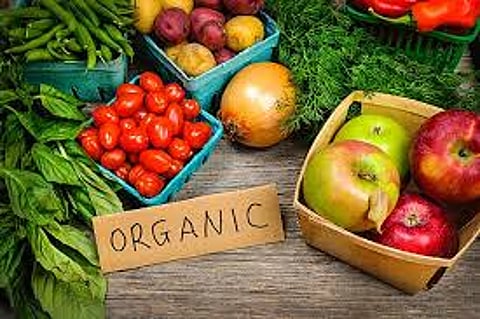
- Home
- Live Blog
- Breaking News
- Top Headlines
- Cities
- NE News
- Sentinel Media
- Sports
- Education
- Jobs

Saurabh Katkurwar
(Saurabh Katkurwar can be contacted at saurabh.k@ians.in)
Exports of organic products from India have risen over 20 per cent in the fiscal just ended owing to the “growing global appetite for healthy food” that is free from chemicals and pesticides residues. This is also a leg-up for the government’s plans to expand the area under eco-friendly and sustainable farming, stakeholders say.
As per the Agricultural and Processed Food Products Export Development Authority (APEDA), India exported organic products worth Rs 30 billion (over $440 million) in 2017-18, from Rs 24.77 billion in 2016-17.
The major demand under organic product category is for flax seeds, sesame and soybean; for pulses such as arhar (red gram), chana (pigeon pea); and rice besides tea and medicinal plants, said APEDA Chairman D.K Singh.
“People around the globe are getting more conscious of what they are eating. They are switching to organic products as they do not want chemicals in their food. Compared to the overall agriculture export, the share of organic products is less. But the rate of growth is quite impressive,” Singh told IANS.
In 2016-17, India exported 21.27 million tonnes of (regular) agricultural products worth Rs 1,084 billion, including substantial amounts of rice, animal products and fresh vegetables and fruits. In the same year, 309,766 tonnes of organic products worth Rs 24.77 billion were exported.
Singh said the amount of organic products exported was very low 10 years ago but it had shown remarkable growth in the last few years.”Looking at the growing demand, we expect the export of organic products would be around Rs 300-500 billion in the next 10 years,” he said.
As per the Agriculture Ministry, farmers are encouraged to adopt eco-friendly farm techniques under Paramparagat Krishi Vikas Yojana (PKVY), which not just improves soil health but give better returns.
Neeraja Adidam, Joint Secretary in the Ministry, told IANS that over 200,000 hectares of land has been brought under organic farming by forming over 10,000 clusters of 20 hectares each in the past three years.
“There is a rising awareness among farmers about maintaining soil fertility. In addition, organic products fetch better remuneration. We have achieved the target of 200,000 hectares of land under the PKVY. Now, we have to bring over 400,000 hectares by 2019-20,” Adidam said.
Farmers are given financial assistance of Rs 50,000 under the PKVY. As per the ministry’s data, farmers have rceived 20 per cent higher prices for their organic produce. European Union member-countries were the biggest buyer of organic products from India in 2016-17 with imports of 124,398 tonnes, followed by the US with 116,595 tonnes.
There is a growing demand from Canada, Taiwan and South Korea in recent years, Singh said. “Germany is one of the biggest importers of Indian organic products. Now, many new countries are taking interest,” he said. However, there is no demand for organic products from the Gulf countries — including the UAE — which are otherwise major destinations for Indian agricultural commodities, especially fresh vegetables and fruits.
According to Apeda, around 399,717 tonnes of oil seeds and 195,552 tonnes of cereals and millet were produced in the country using organic farm techniques in 2016-17. The number is 62,329 tonnes for pulses and 39,129 tonnes for tea and 1,55,136 tonnes for cotton.
The other organic products grown include spice and condiments, medicinal and aromatic plants, fruits, vegetables, dry fruits, coffee, ornamental plants, flowers and potatoes. (IANS)